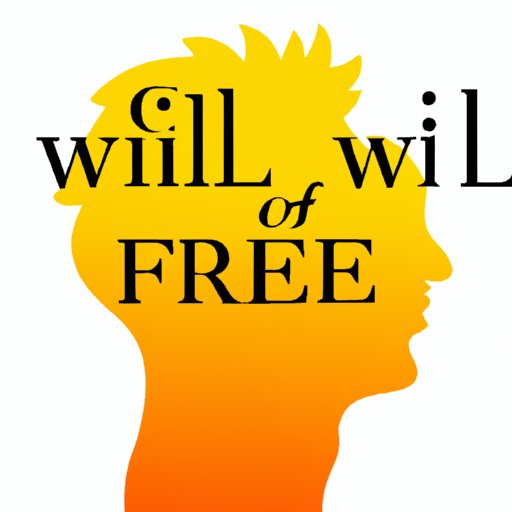
I. Introduction
Free will is a concept that has puzzled philosophers, theologians, and scholars for centuries. It is the ability of humans to make choices and decisions freely, independent of outside influences and determinations. While it is a fundamental aspect of human consciousness, the question of why God granted us this ability remains a mystery. In this article, we will explore the idea of free will from various perspectives, including philosophical, biblical, historical, psychological, practical, and ethical. Our goal is to provide a comprehensive understanding of the nature of free will and its purpose.
II. Philosophical Perspective
From a philosophical perspective, free will is the ability to choose among options without being unduly influenced. Different philosophical perspectives have been proposed to account for the nature of free will, including determinism, compatibilism, and libertarianism. Determinism suggests that everything that happens is predetermined by past events, which means that free will is an illusion. Compatibilism combines the idea of determinism with the idea that humans can still have free will due to the way that determinism operates. Libertarianism argues that free will is real and that humans possess it. Free will ties closely to issues of morality, virtue, and destiny. It raises the question of whether humans can be held accountable for their choices if their decisions are predetermined.
III. Biblical Perspective
In the Bible, human agency and free will are central themes. Key passages that discuss free will include Deuteronomy 30:19, where God says, “I have set before you life and death, blessings and curses. Now choose life, so that you and your children may live.” The idea that humans have choices to make and that God respects those choices is a central aspect of His plan for humankind in relation to free will. However, the Bible also teaches that humans are accountable for their actions and that they must take responsibility for their choices.
IV. Historical Perspective
Different religious traditions have had varying views on free will throughout history. For example, the ancient Greeks believed in the concept of fate, which meant that one’s destiny was predetermined. In contrast, Judaism and Christianity have emphasized human responsibility and free will. The concept of free will evolved over time, shaped by societal and cultural influences.
V. Psychological Perspective
Psychologists have studied the effects of free will on mental health. Exercising free will has been found to increase feelings of control and autonomy, which contributes to a sense of well-being. In contrast, feelings of helplessness, passivity and dependence, which often accompany a lack of free will, can lead to depression and anxiety. Making choices that are aligned with one’s values and goals is a key component of cultivating well-being.
VI. Practical Perspective
In practical terms, free will involves making choices that have consequences. Free will is not just about deciding between different flavors of ice cream; it is about making choices that impact one’s life and others. Tips for exercising free will in positive ways include overcoming addictions, cultivating positive habits, and living a fulfilling life. Making conscious, deliberate choices that contribute to one’s sense of well-being and purpose are essential to living a fulfilling life.
VII. Ethical Perspective
The concept of free will has implications in ethical decision-making. It raises questions about human autonomy and the value of individual choice and self-determination. Ethical considerations include the responsibilities we have to others when we exercise our free will. We must consider how our choices impact the lives of those around us, and we must also accept the consequences of our actions.
VIII. Conclusion
In conclusion, the nature and purpose of free will remain a mystery. Philosophers, theologians, and scholars have long debated why God allowed humankind to have free will. Nevertheless, it is clear that free will is a fundamental aspect of human consciousness that has played a significant role in shaping societies and cultures throughout history. From philosophical and religious perspectives to psychological and practical viewpoints, exercising our free will in positive ways has profound implications for our well-being and our relationships with others. As such, we must continue to explore the nature of free will and better understand its role in human life.
So, let’s make each decision wisely and carefully to create a positive impact for our community and surroundings.




